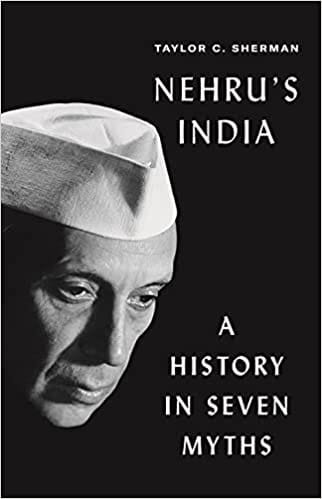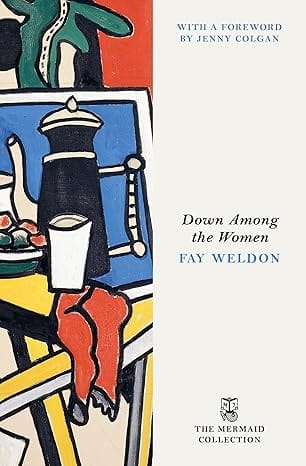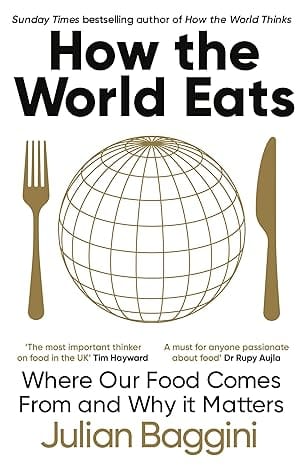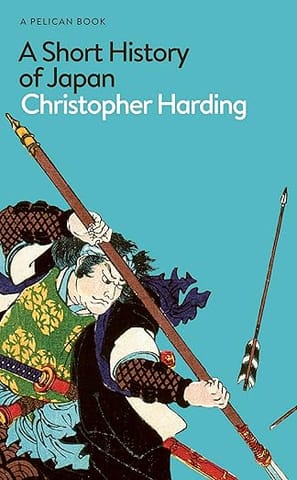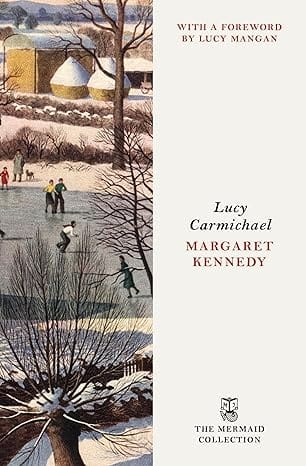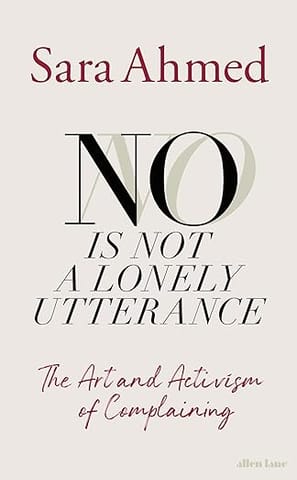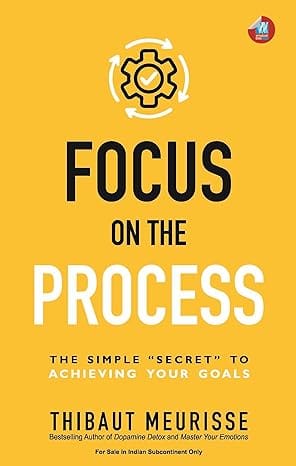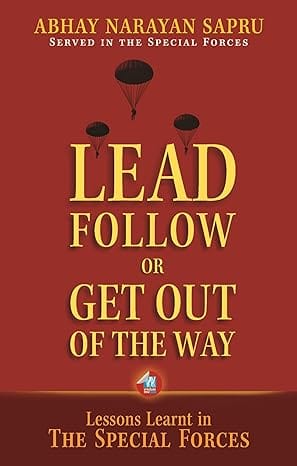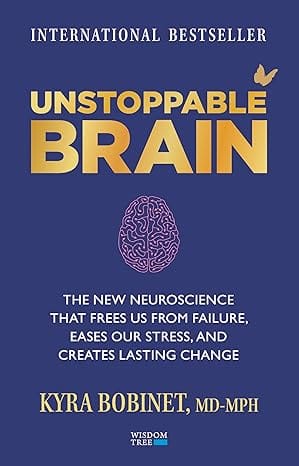WELCOME TO MIDLAND BOOK SHOP!
SHOP FOR
- Non-ficton
- Non-ficton
- Contemporary Fiction
- Contemporary Fiction
- Children
- Children
- Comics & Graphic Novels
- Comics & Graphic Novels
- Non-Fiction
- Non-Fiction
- Fiction
- Fiction
Shop No.20, Aurobindo Palace Market, Hauz Khas, Near Church +91 9818282497 | 011 26867121 110016 New Delhi IN
Midland The Book Shop ™
Shop No.20, Aurobindo Palace Market, Hauz Khas, Near Church +91 9818282497 | 011 26867121 New Delhi, IN
+919871604786 https://www.midlandbookshop.com/s/607fe93d7eafcac1f2c73ea4/69453da445ba84d539b38f9a/black-yellow-simple-bold-youtube-channel-logo-400-x-100-px-1--480x480.png" [email protected]9780691245775 633c231ab7a80825ad741fee Nehrus India A History In Seven Myths https://www.midlandbookshop.com/s/607fe93d7eafcac1f2c73ea4/633c231cb7a80825ad7420c7/41vjnbtn1-l-_sx320_bo1-204-203-200_.jpg 9780691245775
An iconoclastic history of the first two decades after independence in India
Nehru’s India brings a provocative but nuanced set of new interpretations to the history of early independent India. Drawing from her extensive research over the past two decades, Taylor Sherman reevaluates the role of Jawaharlal Nehru, India’s first prime minister, in shaping the nation. She argues that the notion of Nehru as the architect of independent India, as well as the ideas, policies, and institutions most strongly associated with his premiership-nonalignment, secularism, socialism, democracy, the strong state, and high modernism-have lost their explanatory power. They have become myths.
Sherman examines seminal projects from the time and also introduces readers to little-known personalities and fresh case studies, including India’s continued engagement with overseas Indians, the importance of Buddhism in secular India, the transformations in industry and social life brought about by bicycles, a riotous and ultimately doomed attempt to prohibit the consumption of alcohol in Bombay, the early history of election campaign finance, and the first state-sponsored art exhibitions. The author also shines a light on underappreciated individuals, such as Apa Pant, the charismatic diplomat who influenced foreign policy from Kenya to Tibet, and Urmila Eulie Chowdhury, the rebellious architect who helped oversee the building of Chandigarh.
Tracing and critiquing developments in this formative period in Indian history, Nehru’s India offers a fresh and definitive exploration of the nation’s early postcolonial era.
Nehru’s India brings a provocative but nuanced set of new interpretations to the history of early independent India. Drawing from her extensive research over the past two decades, Taylor Sherman reevaluates the role of Jawaharlal Nehru, India’s first prime minister, in shaping the nation. She argues that the notion of Nehru as the architect of independent India, as well as the ideas, policies, and institutions most strongly associated with his premiership-nonalignment, secularism, socialism, democracy, the strong state, and high modernism-have lost their explanatory power. They have become myths.
Sherman examines seminal projects from the time and also introduces readers to little-known personalities and fresh case studies, including India’s continued engagement with overseas Indians, the importance of Buddhism in secular India, the transformations in industry and social life brought about by bicycles, a riotous and ultimately doomed attempt to prohibit the consumption of alcohol in Bombay, the early history of election campaign finance, and the first state-sponsored art exhibitions. The author also shines a light on underappreciated individuals, such as Apa Pant, the charismatic diplomat who influenced foreign policy from Kenya to Tibet, and Urmila Eulie Chowdhury, the rebellious architect who helped oversee the building of Chandigarh.
Tracing and critiquing developments in this formative period in Indian history, Nehru’s India offers a fresh and definitive exploration of the nation’s early postcolonial era.
About the Author
Taylor C. Sherman teaches in the Department of International History at the London School of Economics and Political Science. Her books include Muslim Belonging in Secular India and State Violence and Punishment in India.
in stockINR 719
1 1
Email ID already exists!
Your Current password is incorrect
Password Updated Successfully
Thanks for your Feedback
- Home
- Non-Fiction
- Nehrus India A History In Seven Myths
Nehrus India A History In Seven Myths
ISBN: 9780691245775
₹719
₹799 (10% OFF)SIZE GUIDE
Sold By: Hauz Khas - Aurobindo Market
Details
- ISBN: 9780691245775
- Author: Taylor C Sherman
- Publisher: Princeton University Press
- Pages: 312
- Format: Hardback
Book Description
An iconoclastic history of the first two decades after independence in India
Nehru’s India brings a provocative but nuanced set of new interpretations to the history of early independent India. Drawing from her extensive research over the past two decades, Taylor Sherman reevaluates the role of Jawaharlal Nehru, India’s first prime minister, in shaping the nation. She argues that the notion of Nehru as the architect of independent India, as well as the ideas, policies, and institutions most strongly associated with his premiership-nonalignment, secularism, socialism, democracy, the strong state, and high modernism-have lost their explanatory power. They have become myths.
Sherman examines seminal projects from the time and also introduces readers to little-known personalities and fresh case studies, including India’s continued engagement with overseas Indians, the importance of Buddhism in secular India, the transformations in industry and social life brought about by bicycles, a riotous and ultimately doomed attempt to prohibit the consumption of alcohol in Bombay, the early history of election campaign finance, and the first state-sponsored art exhibitions. The author also shines a light on underappreciated individuals, such as Apa Pant, the charismatic diplomat who influenced foreign policy from Kenya to Tibet, and Urmila Eulie Chowdhury, the rebellious architect who helped oversee the building of Chandigarh.
Tracing and critiquing developments in this formative period in Indian history, Nehru’s India offers a fresh and definitive exploration of the nation’s early postcolonial era.
Nehru’s India brings a provocative but nuanced set of new interpretations to the history of early independent India. Drawing from her extensive research over the past two decades, Taylor Sherman reevaluates the role of Jawaharlal Nehru, India’s first prime minister, in shaping the nation. She argues that the notion of Nehru as the architect of independent India, as well as the ideas, policies, and institutions most strongly associated with his premiership-nonalignment, secularism, socialism, democracy, the strong state, and high modernism-have lost their explanatory power. They have become myths.
Sherman examines seminal projects from the time and also introduces readers to little-known personalities and fresh case studies, including India’s continued engagement with overseas Indians, the importance of Buddhism in secular India, the transformations in industry and social life brought about by bicycles, a riotous and ultimately doomed attempt to prohibit the consumption of alcohol in Bombay, the early history of election campaign finance, and the first state-sponsored art exhibitions. The author also shines a light on underappreciated individuals, such as Apa Pant, the charismatic diplomat who influenced foreign policy from Kenya to Tibet, and Urmila Eulie Chowdhury, the rebellious architect who helped oversee the building of Chandigarh.
Tracing and critiquing developments in this formative period in Indian history, Nehru’s India offers a fresh and definitive exploration of the nation’s early postcolonial era.
About the Author
Taylor C. Sherman teaches in the Department of International History at the London School of Economics and Political Science. Her books include Muslim Belonging in Secular India and State Violence and Punishment in India.
User reviews
NEWSLETTER
Subscribe to get Email Updates!
Thanks for subscribing.
Your response has been recorded.

India's Iconic & Independent Book Store offering a vast selection of books across a variety of genres Since 1978.
"We Believe In The Power of Books" Our mission is to make books accessible to everyone, and to cultivate a culture of reading and learning. We strive to provide a wide range of books, from classic literature, sci-fi and fantasy, to graphic novels, biographies and self-help books, so that everyone can find something to read.
Whether you’re looking for your next great read, a gift for someone special, or just browsing, Midland is here to make your book-buying experience easy and enjoyable.
We are shipping pan India and across the world.
For Bulk Order / Corporate Gifting
 +91 9818282497 |
+91 9818282497 |  [email protected]
[email protected]
Click To Know More
QUICK LINKS
ADDRESS
Midland Book Shop - Hauz Khas
Shop No.20, Aurobindo Palace Market, Near Church, New Delhi
Shop No.20, Aurobindo Palace Market, Near Church, New Delhi

